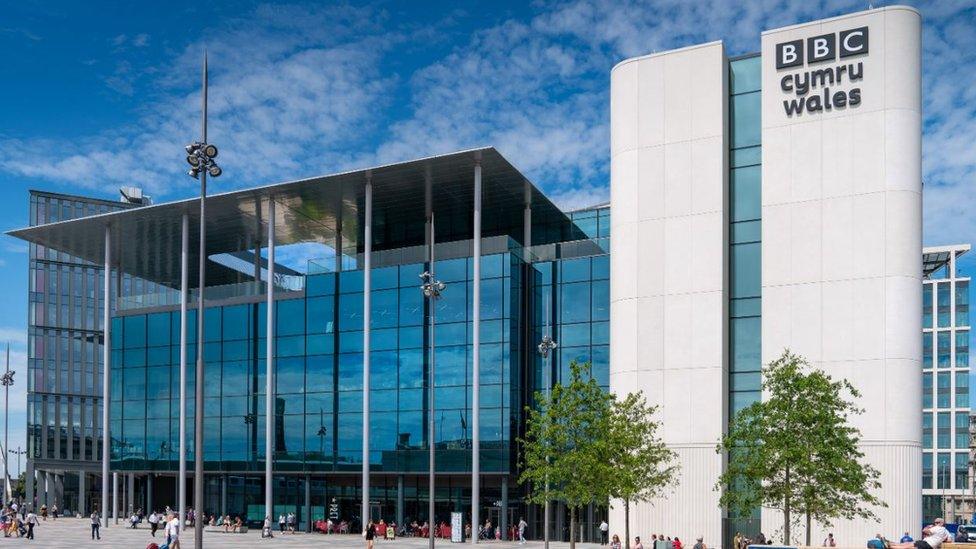BBC Wales Llandaff: Vaughan Roderick's memories of Broadcasting House
- Published
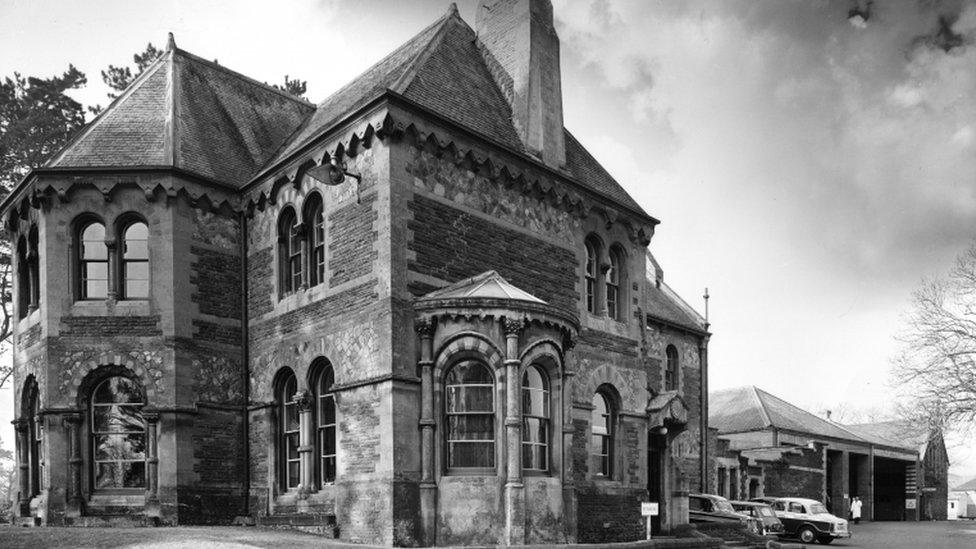
Baynton House: a "Scooby-Doo style haunted house"
I'm probably the only person around at BBC Llandaff that can remember the building that stood here before Broadcasting House.
Baynton House, a ramshackle red sandstone Victorian mansion, seemed slightly spooky to me as a child, but if the original BH was a Scooby-Doo style haunted house, its replacement was straight out of Thunderbirds or Stingray.
When the new BH opened in the 1960s, everything about it screamed modernity with its plate glass walls, bare concrete pillars and sleek space-age lines.
Inside though, something of the old lingered on, as tweedy men with pipes battled it out with bright young graduates from Oxbridge and the University of Wales, determined to drag Wales kicking and screaming into the second half of the 20th Century.
Between them they built the closest thing Wales has ever had to a dream factory.
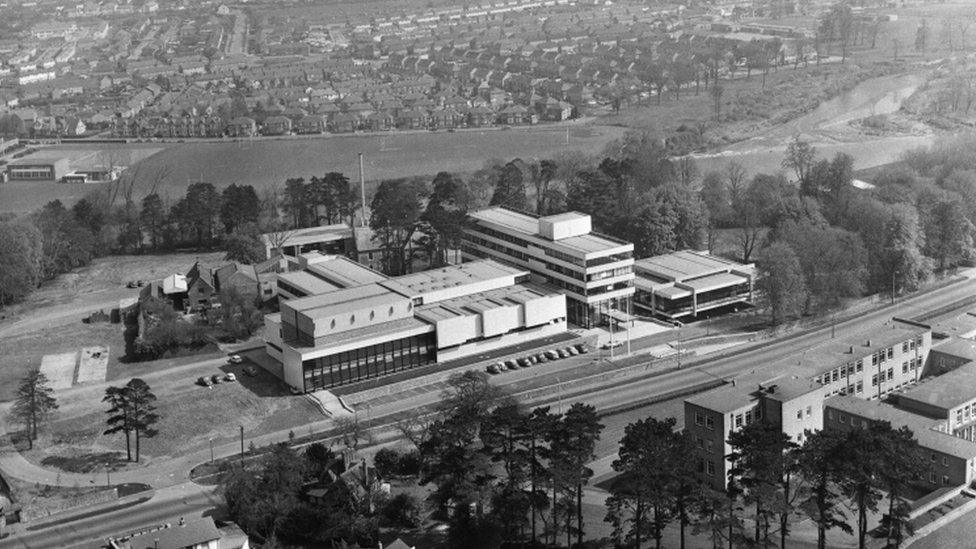
Broadcasting House in the 1960s "screamed modernity"
The range of output in those early years was extraordinary to our eyes. C2, the home of television news for the whole of the building's existence, also housed children's programmes - Wales Today was regularly broadcast under the beady eyes of various teddy bears and gonks sitting at the far end of the studio.
Next door, the enormous C1 was home over the years to Ryan and Ronnie, David Lloyd George, Crimewatch, the entire population of Cwmderi and all those election and referendum night marathons.
Television was always slightly out on a limb at BH though. Radio sat at the heart of the building with its grandly named Concert Hall, home to an orchestra that seemed to change its name as often as it did conductors before becoming the BBC National Orchestra of Wales.
Studio 2 was the home of radio audience discussion programmes and panel games, while the drama studio was packed with doors, windows and much else besides, required when sound effects had to be manufactured rather than played in.
Back in the early days, with just a handful of TV channels and radio stations, people would watch or listen to pretty much anything and the programme makers were probably a bit freer to experiment than we are today.
It's hard to imagine BBC Wales choosing to broadcast half-hour programmes of Anglo-Welsh poetry in peak time today, but back in the 1970s, that's exactly what they did.
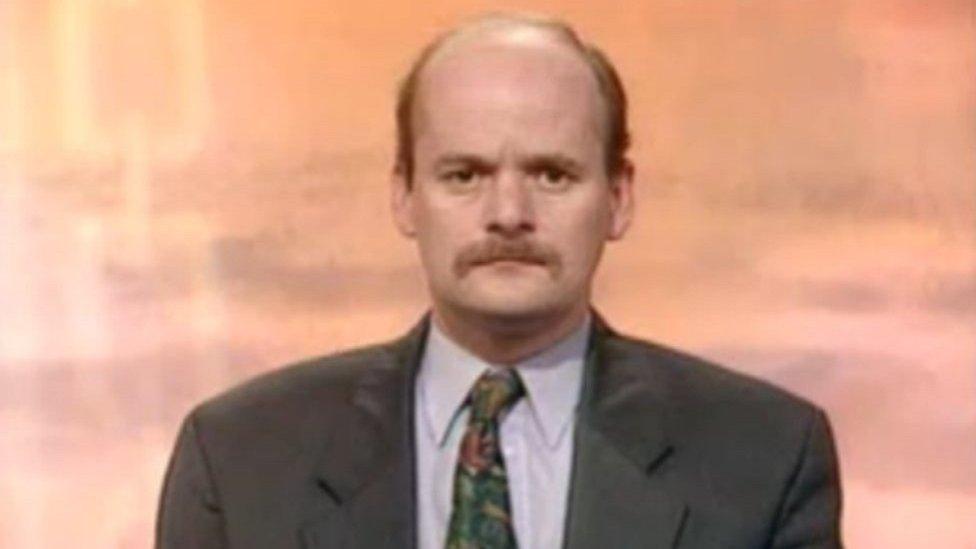
Vaughan Roderick in studio in 1992
But then, those were the days when, as one manager put it, "the BBC sailed on a sea of Chablis". Maybe poetry seemed like a good idea after one glass too many!
Ultimately though, broadcasting is about people, not buildings, and in its later years, BH had come to resemble one of those grand old ocean liners, limping along on one engine and where nothing seemed to work quite as it should.
For most of us, the excitement of the new outweighs nostalgia for the old and, just as BH was cutting edge when it opened, the new studios in Central Square are state-of-the-art facilities.
That's not to say that there won't be the odd tear shed when the last programme has been broadcast from Llandaff, when the last dream has been dreamed and the factory is closed down for ever.
How BBC Wales' headquarters has changed over the years
- Published27 September 2020
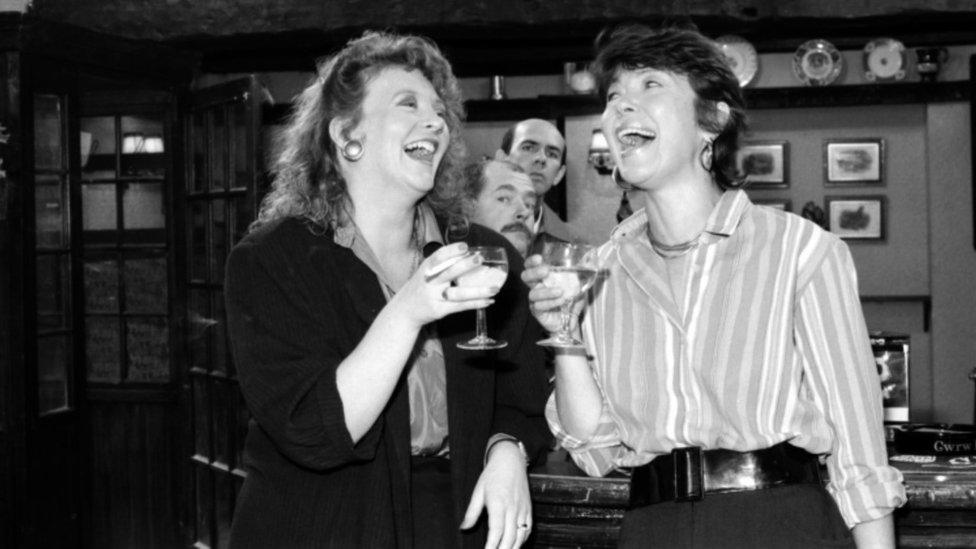
- Published25 September 2020
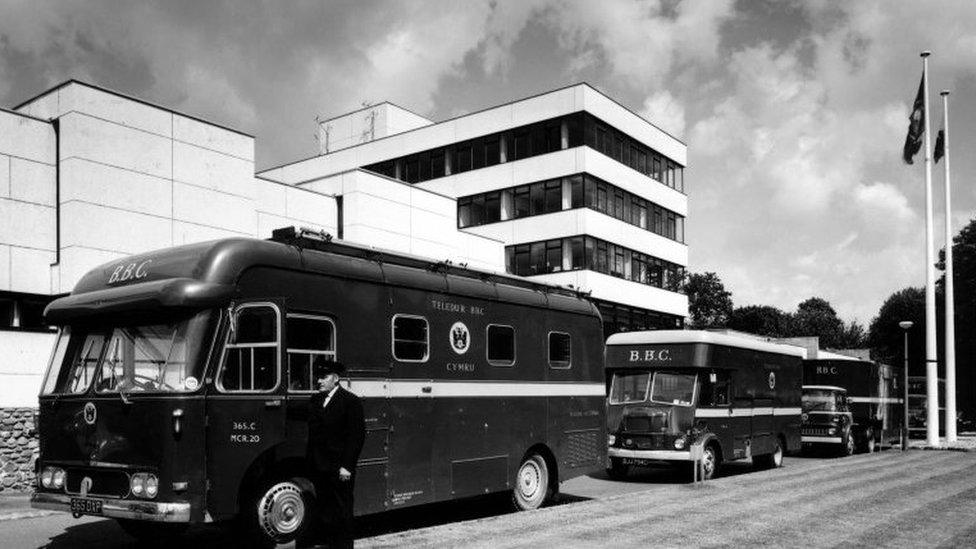
- Published15 July 2020
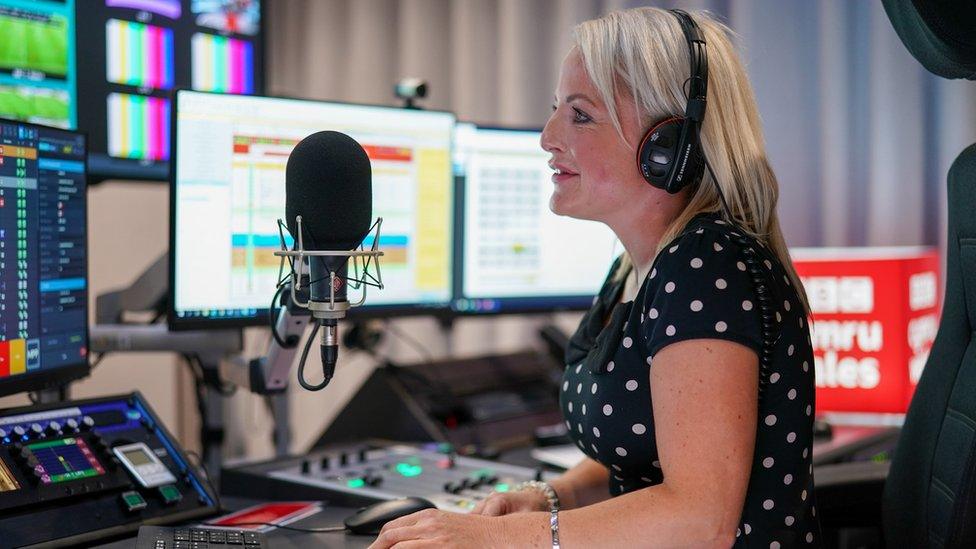
- Published21 October 2019
